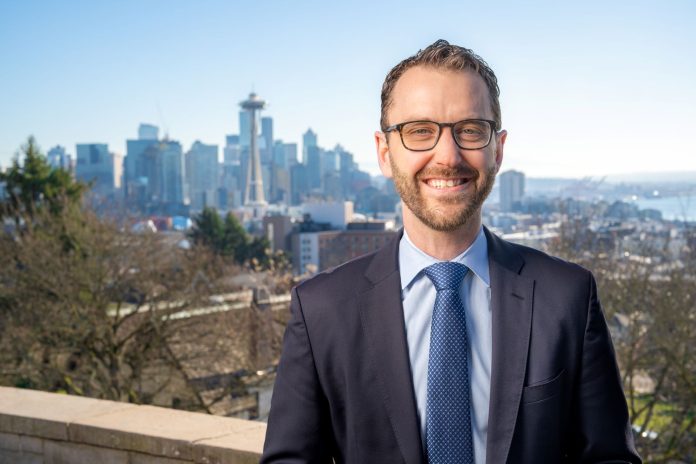
Too many people are sitting in a jail cell simply because they cannot afford bail while they await trial.
As the Trump administration mocks our constitutional rights, everyone in public service must ask what they can do within their own power to protect our most fundamental rights. For local prosecutors, the answer is simple: stop seeking cash bail for nonviolent misdemeanor charges and reserve bail requests for serious allegations of domestic violence and repeat driving under the influence (DUI) offenses.
It has always been unconscionable (and racist) for the government to use a person’s lack of financial resources to deprive them of their liberty. But at a time when the federal government is deporting people to a tortuous prison in El Salvador without due process, when ICE preys upon local jail populations for its deportation efforts, when sanctuary cities like Seattle are in the crosshairs of the Trump administration, and when people continue to die in local jails without accountability or explanation, the need to keep presumptively innocent people out of jail unless absolutely necessary has never been so urgent.
Cash bail is an amount of money a person must pay to get out of jail after being accused of a crime. The process begins with the prosecutor — they decide whether to request that a judge impose bail.
Because an accusation is not an adjudication of guilt, there is a “presumption of release” in Washington to ensure that presumptively innocent people are not punished with incarceration before a jury weighs the State’s evidence. This means judges are only supposed to set bail if there is evidence that the accused person is unlikely to return to court, too dangerous to be free, or likely to interfere with the administration of their case.
In theory, when a judge sets bail, the appropriate amount should be affordable to the accused person, incentivize them to return for future court dates, and disincentive them from committing a violent crime. If the person meets their “conditions of release,” they get their money back. If they don’t, the court keeps the money and orders them back to jail.
In practice, however, most people accused of a crime cannot afford to pay any bail at all. Even amounts that some would consider low (e.g., $100) are often enough to keep people incarcerated while their case is pending. This adds up to an astounding statistic — 65% of the jail population nationwide comprises people who are detained pretrial, largely due to unaffordable bail. That’s nearly half a million people.
The cash bail system is perhaps the most striking example of economic injustice in our country: two people can be charged with the same crime, but if they have different financial means, one will wait for trial at home while the other will wait in a cage. People detained pretrial suffer immediate and often irreversible consequences, such as job loss, financial ruin, family separation, and an erosion of mental health. These strains create an immense pressure to plead guilty in exchange for release, even where the detained person is innocent.
This practice persists despite data showing the cash bail system does nothing to improve public safety. Over the past decade, judges, legislatures, and prosecutors implemented major bail reforms across the country. Now, study after study examining the impact of those reforms has revealed zero evidence that bail reform increases crime rates. This is true even in jurisdictions like Philadelphia and Harris County, Texas, that completely eliminated cash bail for most misdemeanors.
In fact, there is data showing that imposing cash bail for misdemeanors worsens public safety by increasing the odds that someone reoffends after release. Since we know pretrial detention can cost someone their job, it should not be surprising that those needlessly caged before their day in court resort to illegal means to pay their bills when they do ultimately get out. In this way, supposedly “tough on crime” policies like the ones our Republican City Attorney embraces actually makes Seattle less safe.
The answer is clear: we need bail reform and we need it now.
An immediate way to begin reforming the bail system in Seattle is for the City Attorney’s Office to stop seeking bail in misdemeanor cases that don’t involve allegations of serious domestic violence or repeat DUIs. Between 2020 and 2022 — the last years of Pete Holmes into the first year of Ann Davison — the Northwest Community Bail Fund observed over 600 misdemeanor bail hearings in the Seattle Municipal Court and published a report. Bail was imposed more than 50% of the time, including many cases involving allegations of low-level, nonviolent property crime.
Even in cases of alleged violence, the City Attorney’s Office must do a better job discerning when bail is appropriate. For instance, a recent Seattle Times article highlighted a case where police answered a wellness call involving a woman experiencing a mental health crisis. During the response, she allegedly kicked two of the officers who then arrested and jailed her. Despite the obvious signs of mental health issues, the City Attorney’s Office not only charged the woman with assault, but requested bail too (fortunately, the request was denied).
While bail remains appropriate in some misdemeanor cases, it must be reserved for situations where the evidence shows that releasing a person from jail poses an obvious threat to public safety. Outside of these instances, there is no evidence to show that detaining presumptively innocent people improves public safety. Far from it, jailing people is destabilizing, dangerous, and perpetuates the revolving door approach to public safety that has persisted in Seattle for years.
At a time when the U.S. Immigration and Customs Enforcement agency is cracking down on sanctuary cities and can use publicly available jail rosters to target people for deportation, we must be extra vigilant before incarcerating someone on the mere suspicion of committing a crime. As we know, innocence isn’t a barrier to deportation under the Trump administration.
It’s time to take bold action on bail reform.

Nathan Rouse (Guest Contributor)
Nathan Rouse is apublic defender, legal advocate, and fatherrunning to be Seattle’s nextCity Attorney. He has spent his public defender career standing up for people who have beenfailed by broken systems and fighting for fairness, accountability, and second chances. Nathan is running because our city needs ajustice system that works for everyone—not just the powerful.

